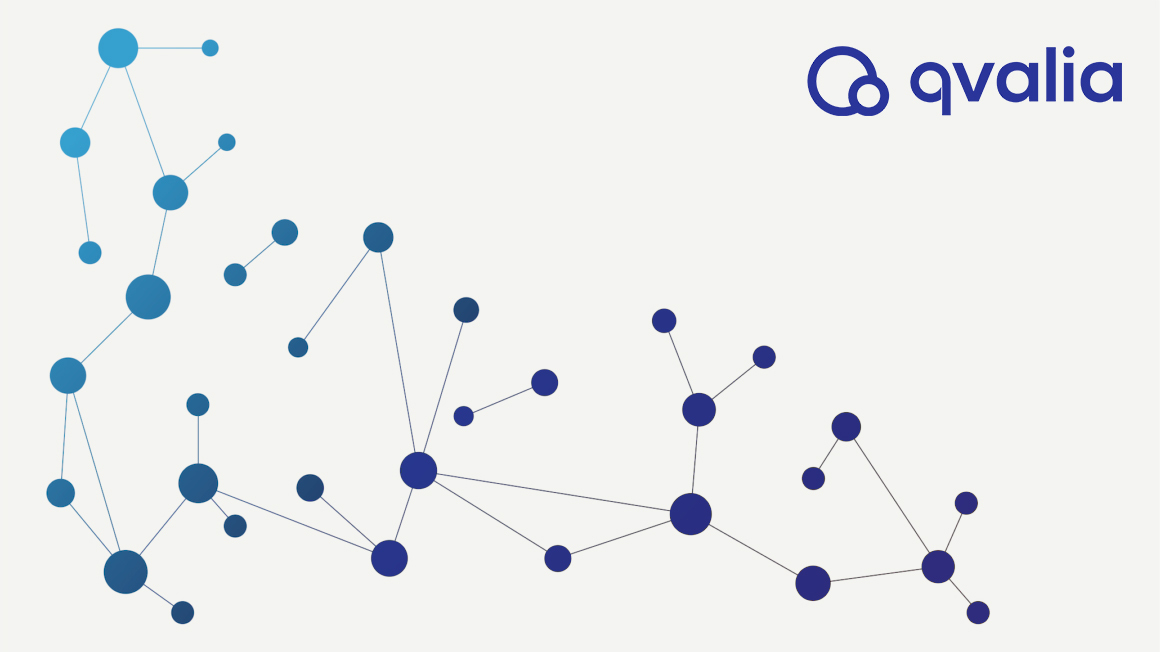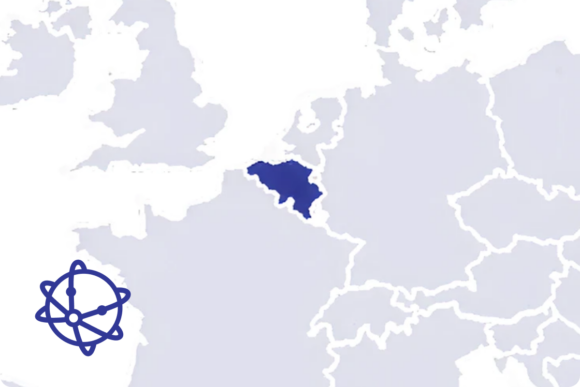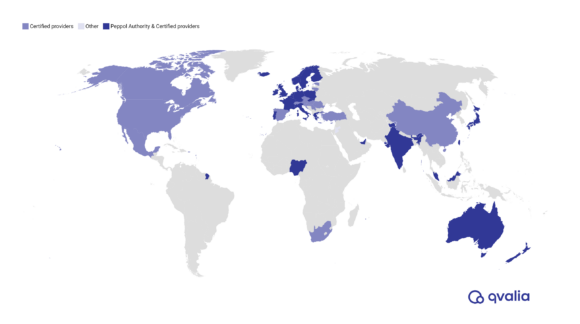
We’re glad to announce that Qvalia now supports e-delivery in AS4 protocol for improved performance and security.
The integration and testing of the AS4 protocol, as part of our Peppol access point service, was successfully deployed in May 2021. As a result, Qvalia can provide AS4 e-delivery services as conformant software, compliant with the European Union’s requirements for the electronic delivery of documents.
E-delivery is an initiative from the European Commission’s Connecting Europe Facility (CEF) fund to develop international specifications, software, and services.
What is e-delivery?
CEF e-delivery is a network of nodes for digital communications based on a distributed model in which participants become nodes using standardized protocols and security policies. The network enables public administrations to exchange electronic documents and data with individuals, businesses, and other public administrations in an interoperable, secure, reliable, and trusted way.
AS4 is the messaging protocol within the CEF e-delivery initiative and was developed by the OASIS standards development organization. CEF e-delivery uses the AS4 implementation guidelines defined by the Member States in the e-SENS Large Scale Pilot.
With the implementation of e-delivery in the AS4 messaging protocol, Qvalia can now provide its users with access to e-delivery-related services and exchange information with AS4 support as an addition to the platform’s e-invoice management, accounting, and process automation capabilities. Contact us to learn more.
Finalizing the AS4EDI project

By deploying the AS4 protocol and the e-delivery AS4 profile, Qvalia concluded its participation in the AS4EDI project.
Initiated in 2019, the project’s objective was to promote the use of the e-delivery DSI-Digital Service Infrastructure with AS4 among companies and public entities. Certified Peppol access points from Sweden, Italy, and Denmark participated.

The contents of this publication are the sole responsibility of Qvalia and do not necessarily reflect the opinion of the European Union.


